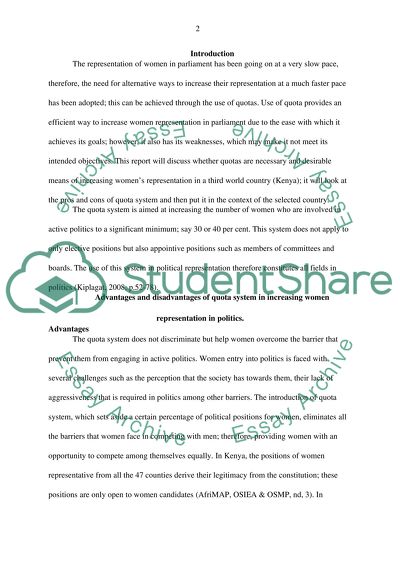Cite this document
(The Main Factors of Quota System Coursework Example | Topics and Well Written Essays - 1500 words, n.d.)
The Main Factors of Quota System Coursework Example | Topics and Well Written Essays - 1500 words. Retrieved from https://studentshare.org/law/1637602-politics-and-government
The Main Factors of Quota System Coursework Example | Topics and Well Written Essays - 1500 words. Retrieved from https://studentshare.org/law/1637602-politics-and-government
(The Main Factors of Quota System Coursework Example | Topics and Well Written Essays - 1500 Words)
The Main Factors of Quota System Coursework Example | Topics and Well Written Essays - 1500 Words. https://studentshare.org/law/1637602-politics-and-government.
The Main Factors of Quota System Coursework Example | Topics and Well Written Essays - 1500 Words. https://studentshare.org/law/1637602-politics-and-government.
“The Main Factors of Quota System Coursework Example | Topics and Well Written Essays - 1500 Words”, n.d. https://studentshare.org/law/1637602-politics-and-government.


